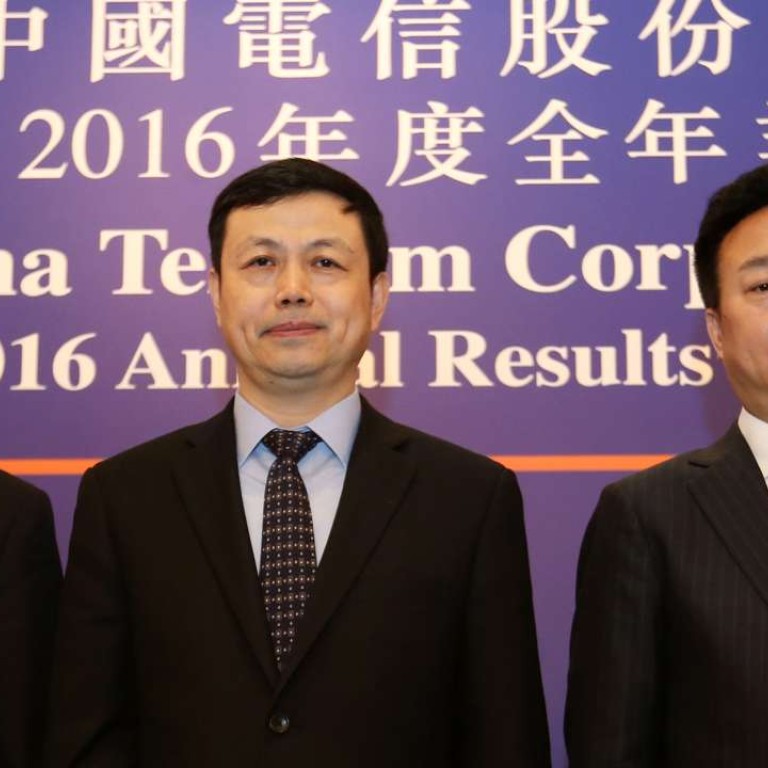
China Telecom eyes revenue growth amid further tariff cuts
Mainland’s third-largest mobile network operator reports a 10pc decline in 2016 net profit
China Telecom, the world’s eighth largest mobile network operator by subscribers, is looking to maintain revenue growth this year despite implementing further tariff reduction measures directed by Beijing.
“Raising [internet] speed costs money, while cutting prices hurts our revenue,” China Telecom chairman and chief executive Yang Jie said on Tuesday. “We will try to minimise the impact [of these actions] by increasing [network] usage and demand.”
The fees affected by Premier Li Keqiang’s recent call for the telecommunications sector to “raise speed, drop prices” account for nearly 10 per cent of China Telecom’s 309.6 billion yuan in service revenues for 2016, according to the company.
China Telecom, China Unicom and China Mobile had all pledged to substantially reduce internet private line access charges for small and medium-sized enterprises, cut international call tariffs, and from October 1, cease to charge domestic long-distance and roaming fees on their mobile subscribers.
Last week, Unicom estimated the cancellation of domestic roaming fees alone would cost it about 1.6 billion yuan (US$232 million) in lost revenue each quarter.
Raising [internet] speed costs money, while cutting prices hurts our revenue
“China Telecom has indicated that 60 per cent of its subscribers are already on plans that do not have domestic roaming charges,” Jefferies equity analyst Edison Lee said.
The company on Tuesday reported an expected decline in its net profit last year amid a modest increase in total revenue. It posted a 10.2 per cent decrease in net profit to about 18 billion yuan, down from 20.7 billion yuan in 2015.
Net profit in the prior year had benefited from a one-off gain of 3.9 billion yuan from the disposal of telecommunications towers and related assets to China Tower Corp, the infrastructure-sharing joint venture of China Mobile, Unicom and China Telecom.
“Similar to Unicom, the extra network costs associated with the 4G expansion and tower sale moderated net profit growth,” Bernstein Research senior analyst Chris Lane said.
China Telecom’s network operations and support expenses rose about 16 per cent to 94.1 billion yuan last year from 81.2 billion yuan in 2015.
Revenue advanced 6.4 per cent to 352.3 billion yuan, from 331.2 billion yuan in 2015, on the back of a steady rise in 4G mobile and fixed-line broadband services.
Those results were broadly in line with projections of an 18.5 billion net profit and revenue of 352.2 billion yuan, according to consensus market estimates from analysts polled by Bloomberg.
Yang said the operator stepped up efforts to help more of its subscribers shift from 3G to 4G services.
China Telecom added 17.1 million new mobile users last year to bring its total subscriber base to 215 million at the end of December, of which 121.9 million were 4G users.
Another 60 million 4G users are expected to be added this year, which would make 80 per cent of China’s Telecom’s total subscriber base on 4G, according to Yang.
The company forecast that its capital expenditure this year would reach 89 billion yuan, down from 96.8 billion yuan last year, as it prepares for future 5G investments.
It will raise the 2016 dividend to HK$0.105 per share, the company’s highest payout per share to date, from HK$0.095 per share paid last year.

